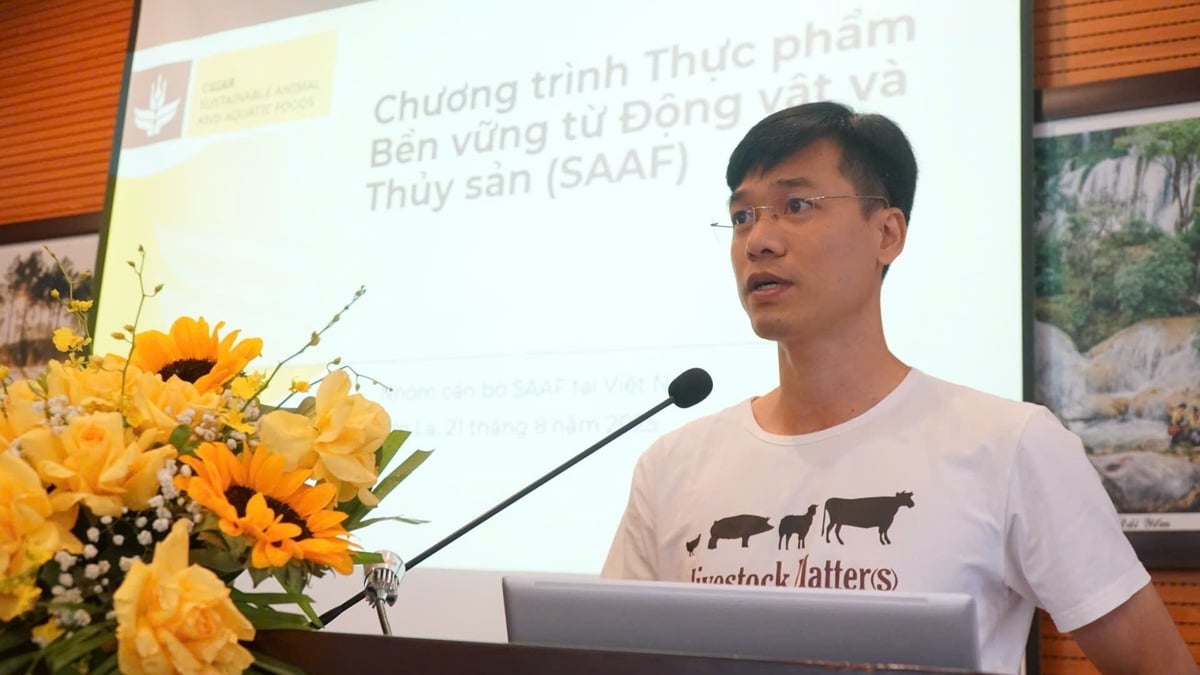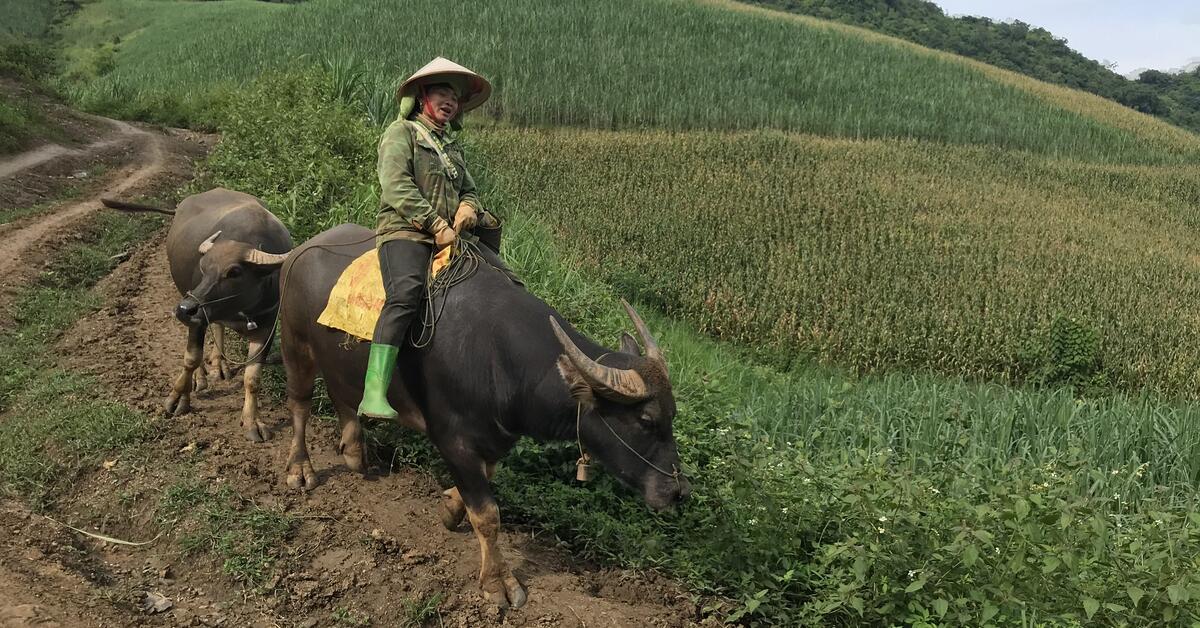December 29, 2025 | 17:27 GMT +7
December 29, 2025 | 17:27 GMT +7
Hotline: 0913.378.918
December 29, 2025 | 17:27 GMT +7
Hotline: 0913.378.918
In the context where the livestock and aquaculture sectors in many countries still face limitations, the Sustainable Animal and Aquatic Foods Program (SAAF) was initiated to address a range of challenges, such as low productivity, complex disease outbreaks, rising antimicrobial resistance, degradation of terrestrial and aquatic ecosystems, and ineffective natural resource management. The initiative is jointly implemented by the International Livestock Research Institute (ILRI), the Alliance Bioversity International - CIAT, in collaboration with the Son La Sub-Department of Livestock, Animal Health and Fisheries.
At the project consultation workshop in Son La on August 21, Dr. Dang Xuan Sinh, SAAF Program Coordinator in Vietnam, emphasized that the project aims to improve people’s lives and well-being by developing an inclusive, healthy, and nutritious food supply chain that is also climate- and environment-friendly.

Mr. Dang Xuan Sinh, SAAF Program Coordinator in Vietnam, hopes the project will reach more farming households. Photo: Duc Binh.
In addition, small-scale producers continue to face difficulties in accessing markets, while incomplete and fragmented data have left policies and investment decisions without a strong scientific basis. To respond to these issues, the SAAF Program strongly emphasizes supporting farming households and small production facilities in adopting technological innovations that can raise productivity and improve the nutritional quality of their products. At the same time, the program encourages the application of climate adaptation solutions, promotes more efficient use of natural resources, and helps build healthier, more resilient ecosystems.
A central pillar of SAAF is the One Health approach, which seeks to reduce the risks of disease outbreaks, ensure food safety, improve community health, safeguard the environment, and enhance resilience to climate change. Equally important, the program is committed to building a fair and inclusive marketplace where women, youth, and other vulnerable groups have meaningful opportunities to participate more fully in the value chain. Developing robust data systems and digital technologies is also seen as a crucial enabler, making it easier for producers to access timely and accurate information, thereby strengthening their capacity to manage risks, optimize production, and make informed decisions.
Dr. Sinh further highlighted that a distinctive feature of the SAAF Program lies in its cross-sectoral connectivity. The program complements other global initiatives such as improving diets and nutrition, advancing climate action, and promoting sustainable agriculture. This approach helps amplify impacts from the household level to national and international scales.

The Sustainable Animal and Aquatic Foods Program (SAAF) will focus on a circular model in sustainable livestock production. Photo: ILRI.
A notable demonstration of SAAF’s innovative approach is the integrated production model that brings together livestock, aquaculture, and crop farming into a closed-loop system. The benefits are manifold: households can reduce production costs, make better use of local resources, minimize greenhouse gas emissions, and at the same time secure higher and more stable incomes. For instance, livestock manure can be utilized in fish ponds or applied as fertilizer for crops, while agricultural by-products can be recycled into animal feed. Such practices illustrate how a circular system can strengthen resilience, reduce waste, and improve both environmental and economic outcomes for farming communities.
Beyond production practices, SAAF places particular importance on creating a fair and inclusive marketplace. The program provides training, facilitates market access, and supports financial services so that women and youth are empowered to take part more meaningfully across the entire value chain, from farming and processing to distribution and consumption. This not only enhances their social standing but also creates strong momentum for innovation, contributing directly to the overall development of the food system.
By equipping farmers with modern tools and digital platforms, SAAF enables them to stay informed about emerging animal and aquatic diseases, track market price fluctuations, and adopt advanced farming methods tailored to their needs. This provides a crucial foundation for transitioning from traditional production methods to smarter, more modern, and sustainable agriculture.
The SAAF Program is expected to serve as a key driver in the transformation of global food systems. Beyond addressing challenges related to productivity, disease control, and environmental sustainability, SAAF also aims to improve community nutrition and foster greater equity across the food supply chain.
Translated by Phuong Linh

(VAN) The Bac Hai Van – Son Cha sea area holds significant ecological, economic, and national defense values, underscoring the need to establish a marine protected area to create an 'ecological belt' for the entire region.

(VAN) Amid the salty rhythm of life on the gem island, Co To is embarking on a journey to conserve the sea, protect livelihoods, and build a sustainable future for generations to come.

(VAN) In 2025, ASOEN Viet Nam made a strong mark in ASEAN environmental cooperation, contributing many important initiatives and preparing for a robust transformation.

(VAN) The experienced agricultural extension workforce will operate the Viet Nam - Angola agriculture and forestry cultivation project in 2026.

(VAN) Language, geography, gender norms and economic conditions continue to limit women’s and girls’ access to health information in many ethnic minority communities.

(VAN) Besides sharing value chain experiences, Hoang Nam Phat Agricultural Cooperative proposed funding for post-harvest infrastructure, promoting trade activities, and applying digital technology to enhance the sustainable value of winter crop.

(VAN) Following the merger of three localities, the new Lam Dong Province now possesses vast forest resources, positioning it as the nation’s largest ‘carbon storehouse.’